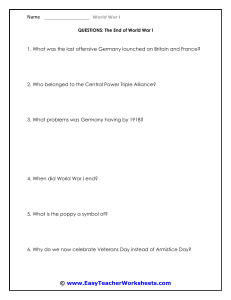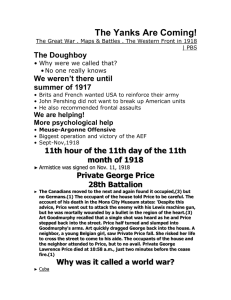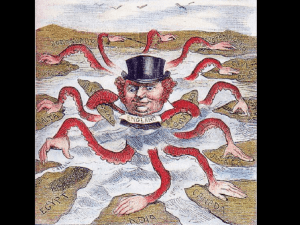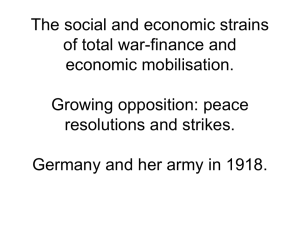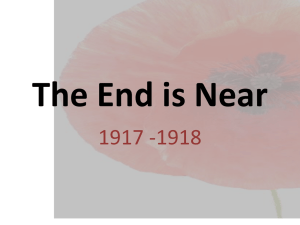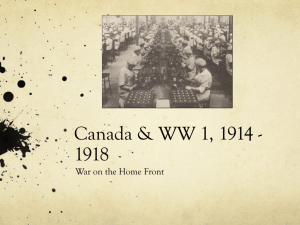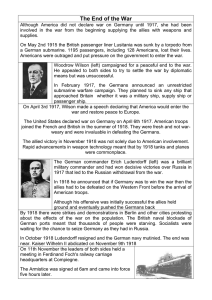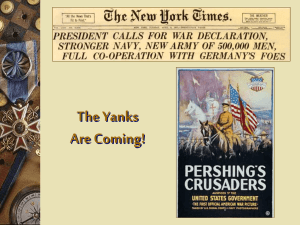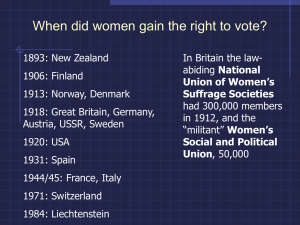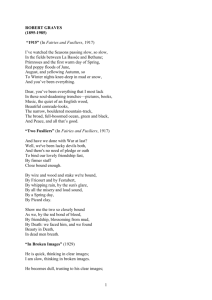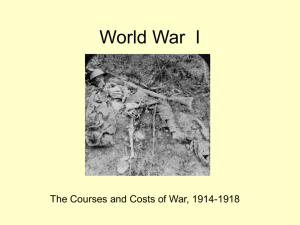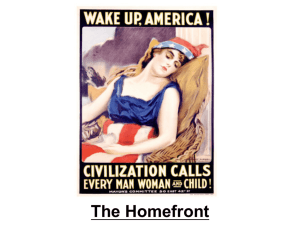World War I Class Notes
advertisement
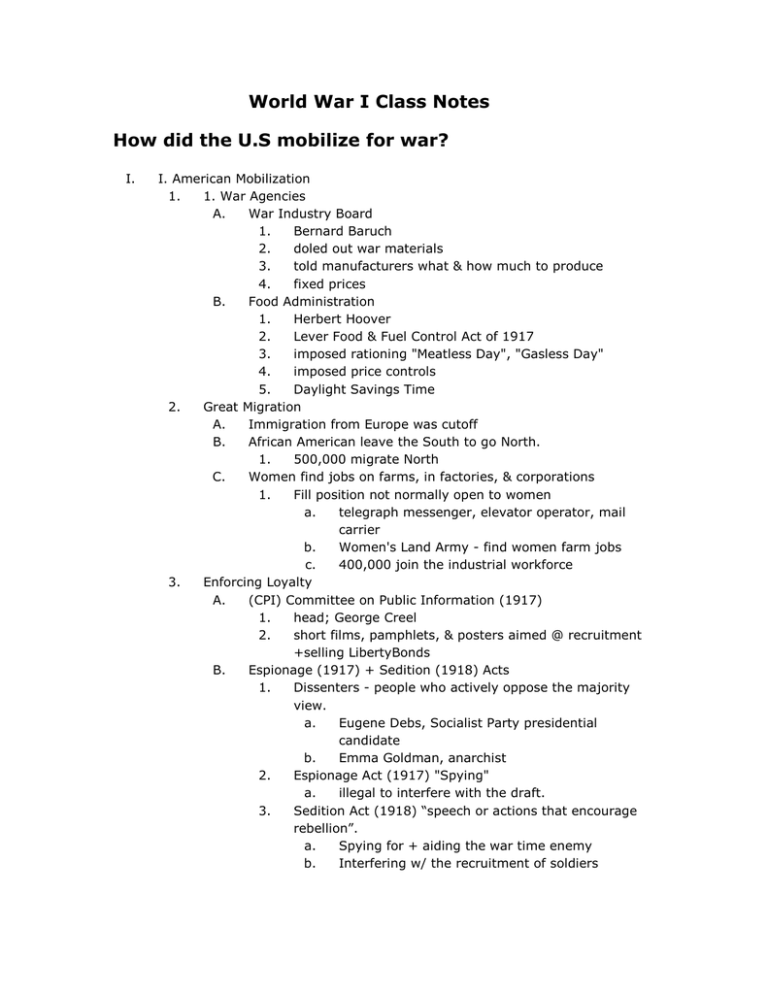
World War I Class Notes How did the U.S mobilize for war? I. I. American Mobilization 1. 1. War Agencies A. War Industry Board 1. Bernard Baruch 2. doled out war materials 3. told manufacturers what & how much to produce 4. fixed prices B. Food Administration 1. Herbert Hoover 2. Lever Food & Fuel Control Act of 1917 3. imposed rationing "Meatless Day", "Gasless Day" 4. imposed price controls 5. Daylight Savings Time 2. Great Migration A. Immigration from Europe was cutoff B. African American leave the South to go North. 1. 500,000 migrate North C. Women find jobs on farms, in factories, & corporations 1. Fill position not normally open to women a. telegraph messenger, elevator operator, mail carrier b. Women's Land Army - find women farm jobs c. 400,000 join the industrial workforce 3. Enforcing Loyalty A. (CPI) Committee on Public Information (1917) 1. head; George Creel 2. short films, pamphlets, & posters aimed @ recruitment +selling LibertyBonds B. Espionage (1917) + Sedition (1918) Acts 1. Dissenters - people who actively oppose the majority view. a. Eugene Debs, Socialist Party presidential candidate b. Emma Goldman, anarchist 2. Espionage Act (1917) "Spying" a. illegal to interfere with the draft. 3. Sedition Act (1918) “speech or actions that encourage rebellion”. a. Spying for + aiding the war time enemy b. Interfering w/ the recruitment of soldiers c. 4. 5. 6. Speaking against the govt’s campaign to sell Liberty Bonds in order to finance the war. d. Using “disloyal, profane, scurrilous, or abusive language” about the American form of govt., flag, or military uniform. C. Schenk v. U.S. 1. Free speech may be curtailed during wartime if it poses a “clear & present danger” Fighting the War A. Recruitment (Pre draft 120,000 enlisted + 80,000 National Guardsmen). 1. Selective Service Act (1917) authorized a draft. 2. 3 million draftees 3. Volunteers + National Guardsmen = American Expeditionary Force (AEP) B. Convoy System (Consisted of unarmed ships surrounded by a ring of destroyers, torpedo boats, + other naval vessels) 1. Used for safe passage of military + supplies across the Atlantic 2. Torpedo boats were equipped to track + destroy submarines Ending the War A. Nov. 1917 Russian Rev. (Bolsheviks/Communists) took Russia out of the war. Germany now devotes all resources to the Western Front. B. Mar 1918 all out German offensive C. Allied counter attack 1. Battle of Amiens (Aug 1918)-allied forces stop German offensive 2. Battle of St.Mihiel –Gen. Pershing led American offensive 3. Meuse-Argonne Offensive-(Sept-Oct 1918) final Allied offensive that led to the armistice Armistice (an agreement to stop fighting) A. Nov 11, 1918 B. Kaiser flees to Holland C. 50,000 American deaths D. 8 million total deaths.
